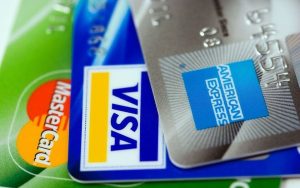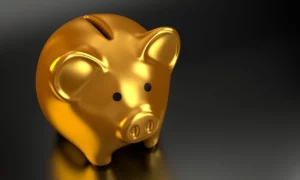Credit cards have become an essential financial tool for many individuals, offering convenience, rewards and the flexibility to manage expenses. One common question that often arises is whether it is bad to pay off credit card balances early.
While paying off credit card debt early can have both positive and negative implications, the answer largely depends on individual financial circumstances and goals. This article delves into the advantages and disadvantages of paying off credit card balances ahead of schedule.

Step By Step Guide On How Credit Cards Work
Before deciding whether or not you should pay off a credit card early, it is essential to understand how credit cards work to ensure responsible and effective use. Here is a step-by-step guide:
Step 1: Application and Approval
Research and Choose a Card: Research different credit card options based on your financial needs, credit score and spending habits. Compare factors like interest rates, annual fees, rewards and benefits.
Submit Application: Apply for the chosen credit card by filling out an online or physical application form provided by the issuing bank or financial institution.
Credit Check: The issuer reviews your application and performs a credit check to assess your creditworthiness. Your credit score, credit history, income and existing debts play a role in the approval decision.
Approval or Denial: Based on the credit check and the issuer’s criteria, you will receive an approval or denial for the credit card. If approved, you will receive the card by mail.
Step 2: Understanding Credit Limits
Credit Limit: Every credit card comes with a credit limit, which is the maximum amount you can borrow using the card. It’s determined by the issuer based on your financial situation and creditworthiness.
Available Credit: Your available credit is the difference between your credit limit and your current balance. It is the amount you can still spend without exceeding your limit.
Step 3: Making Purchases
Swipe or Insert: When making a purchase, present your credit card to the merchant. You will either swipe, insert or tap the card, depending on the technology used.
Authorization: The merchant’s terminal sends a request to the card issuer for authorization. The issuer checks if you have enough available credit for the purchase.
Approval or Decline: The issuer approves the transaction if you have enough available credit. If not, the transaction will be declined.
Step 4: Billing Cycle and Statements
Billing Cycle: Credit card activity is recorded in billing cycles, typically lasting around 30 days. During this period, you can make purchases and accumulate a balance.
Statement Generation: At the end of each billing cycle, the issuer generates a statement detailing your transactions, balance, minimum payment due, due date and other important information.
Grace Period: Most credit cards offer a grace period, during which no interest is charged on new purchases if you pay the full balance by the due date.
Step 5: Repayment
Minimum Payment: The statement specifies a minimum payment, which is the smallest amount you must pay to avoid late fees and negative credit reporting. It is usually a percentage of your balance.
Payment Options: You can choose to pay the minimum, the full balance or any amount in between. Paying the full balance within the grace period helps you avoid interest charges.
Step 6: Interest and Finance Charges
Carrying a Balance: If you do not pay the full balance by the due date, the remaining amount carries over to the next billing cycle and accrues interest.
Interest Rate: Credit cards have an annual percentage rate (APR) that determines the interest rate charged on the carried balance. The APR can vary based on the card and your creditworthiness.
Is It Bad To Pay Off Credit Card Early?
In order to decide whether it is bad or not to pay off a credit card early, it is essential to discuss the pros and cons of doing so. The advantages and disadvantages of paying off credit cards early are summarized in the table below:
The Pros of Paying Off Credit Cards Early: |
The Cons of Paying Off Credit Cards Early: |
| Interest Savings: One of the most significant advantages of paying off credit card balances early is the potential for substantial interest savings. Credit cards often come with high-interest rates, which can accumulate quickly, leading to larger debt burdens. By paying off the balance early, you reduce the time over which interest can accrue, ultimately saving money in the long run. | Lost Grace Period: Most credit cards offer a grace period during which no interest is charged on new purchases if the previous month’s balance is paid in full. Paying off your credit card early might result in losing this grace period, leading to immediate interest charges on new purchases. |
| Improved Credit Score: Credit utilization, or the ratio of your credit card balance to your credit limit, plays a crucial role in determining your credit score. Paying off your credit card early can lower your credit utilization, which positively affects your credit score. A lower credit utilization ratio signals responsible credit management to lenders and credit reporting agencies. | Opportunity Cost: If you allocate funds to pay off your credit card early, you might miss out on other investment opportunities that could yield higher returns. This trade-off between debt repayment and potential investment gains should be carefully considered. |
| Financial Peace of Mind: Paying off credit card debt early can provide a sense of financial security and peace of mind. It eliminates the burden of carrying high-interest debt and reduces the stress associated with managing ongoing credit card payments. | Cash Flow Impact: Paying off a credit card balance early could strain your current cash flow, leaving you with less liquidity for other essential expenses. It is important to strike a balance between debt repayment and maintaining a comfortable level of financial flexibility. |
| Debt Reduction: Early payment of credit card balances aligns with a responsible approach to debt management. By avoiding carrying over balances from month to month, you reduce the risk of falling into a cycle of revolving debt, where interest compounds over time. | |
| Reward Accumulation: Some credit cards offer rewards, such as cash back, discounts or travel points, based on your spending. If you pay off your credit card early and consistently maintain a zero balance, you will maximize your chances of gaining these rewards. |
What Factors Should I Consider?
When deciding whether to pay off your credit card early, you should consider the following factors:
Interest Rate
High-interest rate credit cards are prime candidates for early repayment, as the interest savings can be substantial. Low-interest rate cards might warrant a different strategy, as the potential savings from early repayment could be modest.
Financial Goals
Assess your short-term and long-term financial goals. If you have high-interest credit card debt, paying it off early might align with your goal of achieving debt freedom. If your goal is to invest for the future, balancing debt repayment with investment might be more appropriate.
Emergency Fund
Before prioritizing early credit card repayment, ensure you have an adequate emergency fund. This fund acts as a safety net in case of unexpected expenses and prevents you from having to rely on credit cards in emergencies.

Final Thoughts
The decision to pay off credit card balances early depends on a multitude of factors, including your financial goals, interest rates and individual circumstances. While there are clear advantages to early repayment, such as interest savings and credit score improvement, potential drawbacks, such as losing the grace period and impacting cash flow, should also be taken into account.
Striking the right balance between responsible debt management and pursuing other financial objectives is crucial. Ultimately, understanding your financial priorities and seeking personalized financial advice can help you make an informed decision that aligns with your overall financial well-being.
Was this article helpful?
Justine is a full-time writer with lots of expertise and a wealth of experience in the financial world. In particular, she specializes in household income and consumer finance across the United States. Follow her articles for useful advice and top tips, guides on how to save money and lots more.
